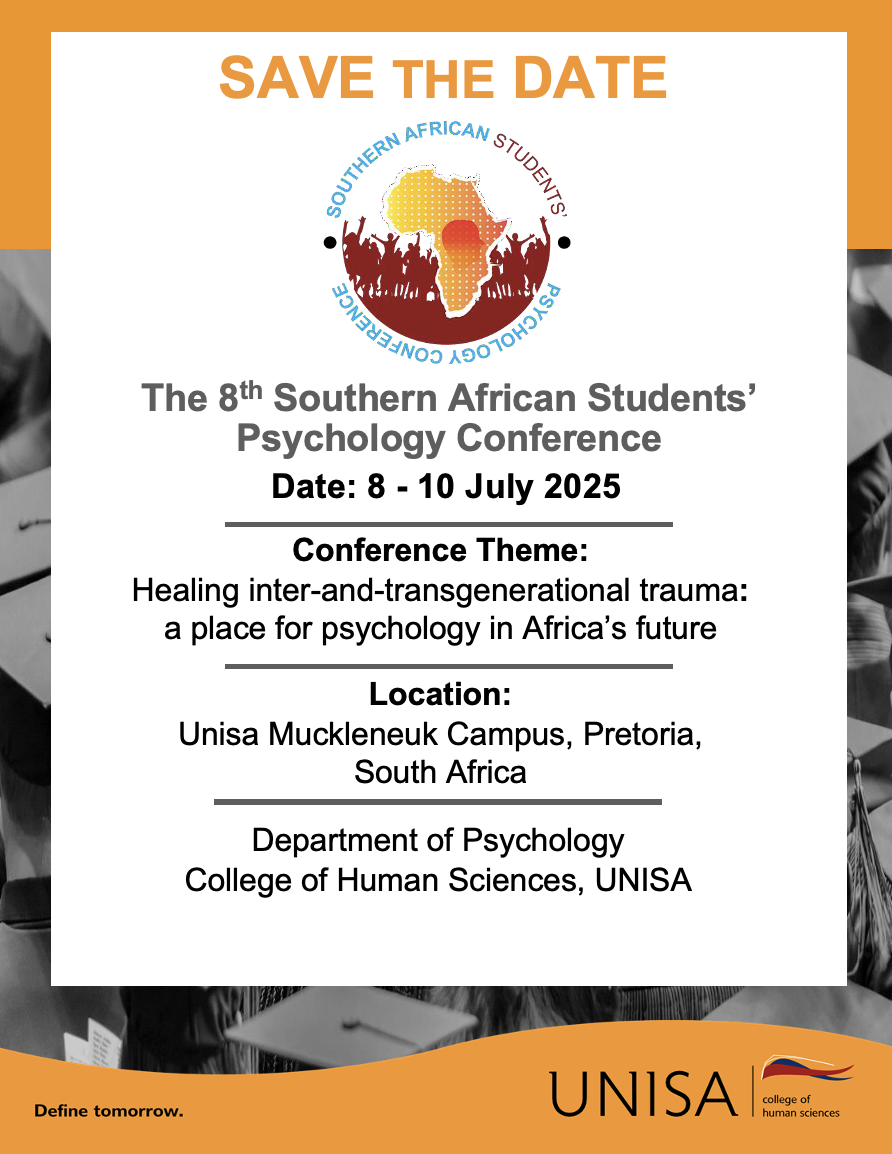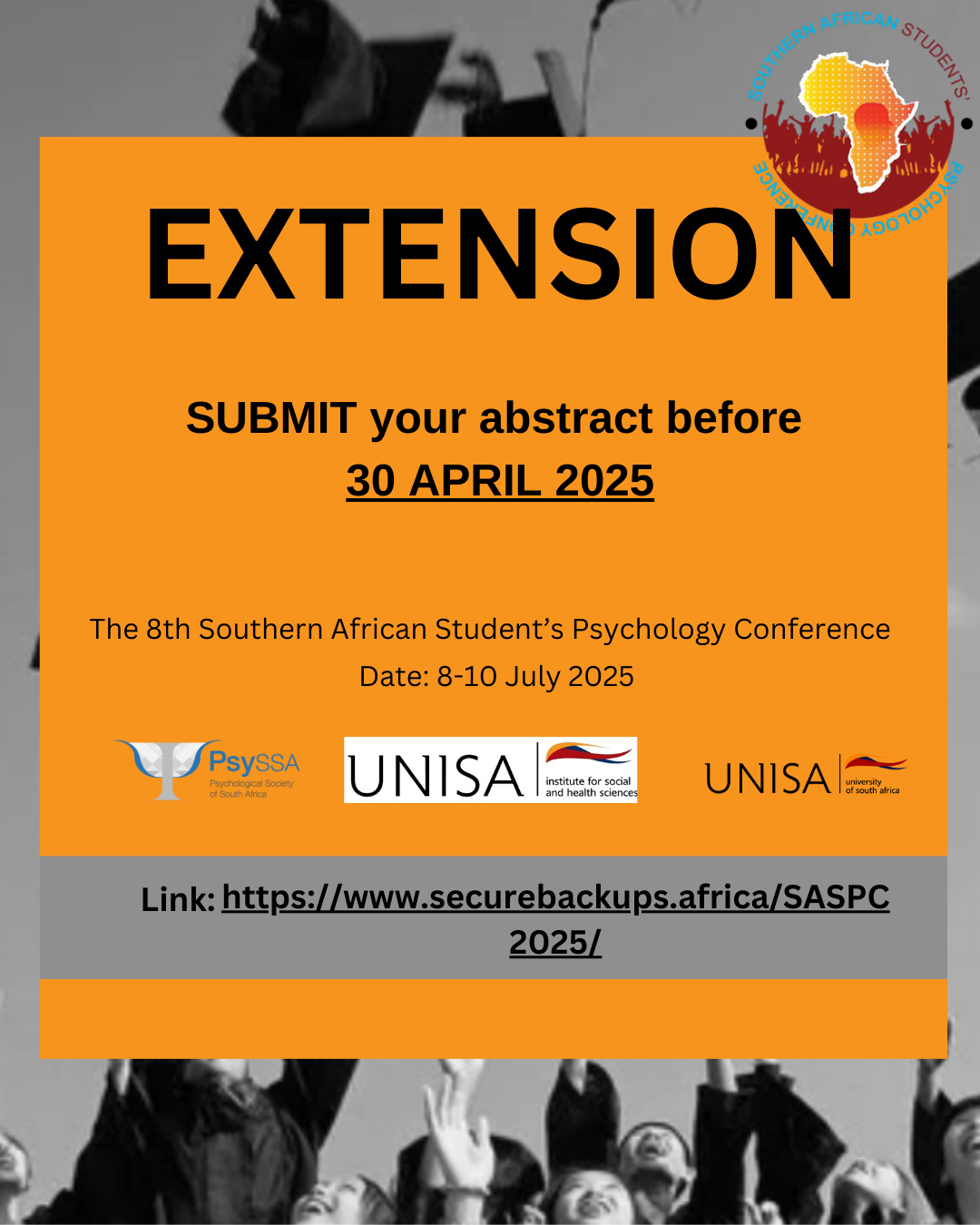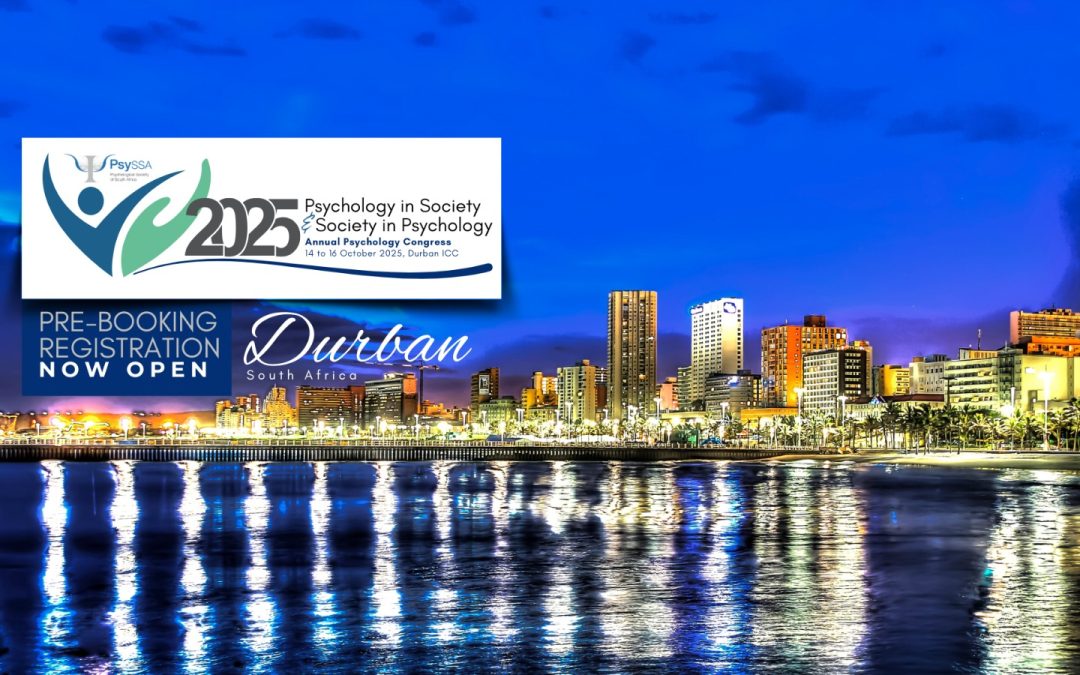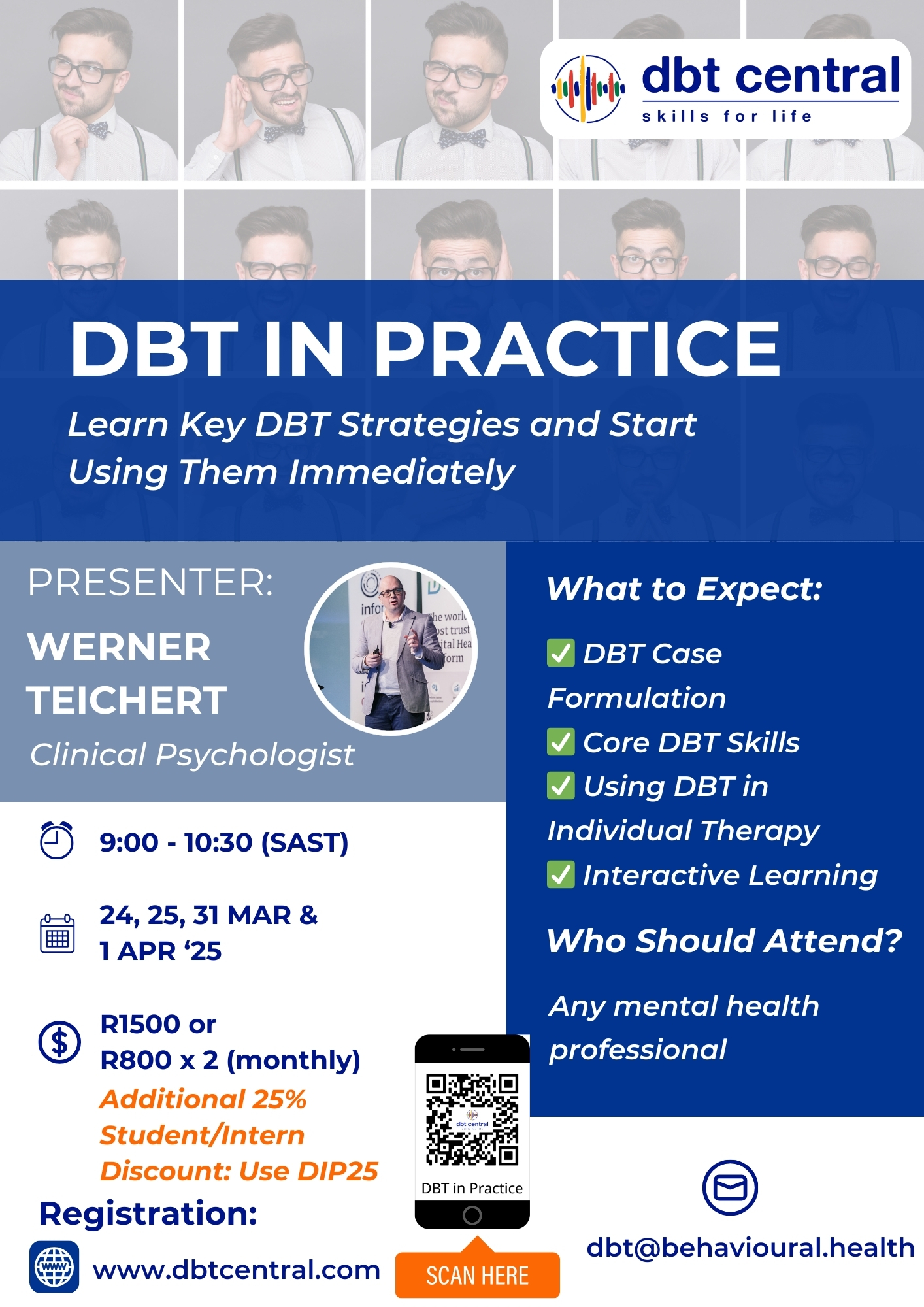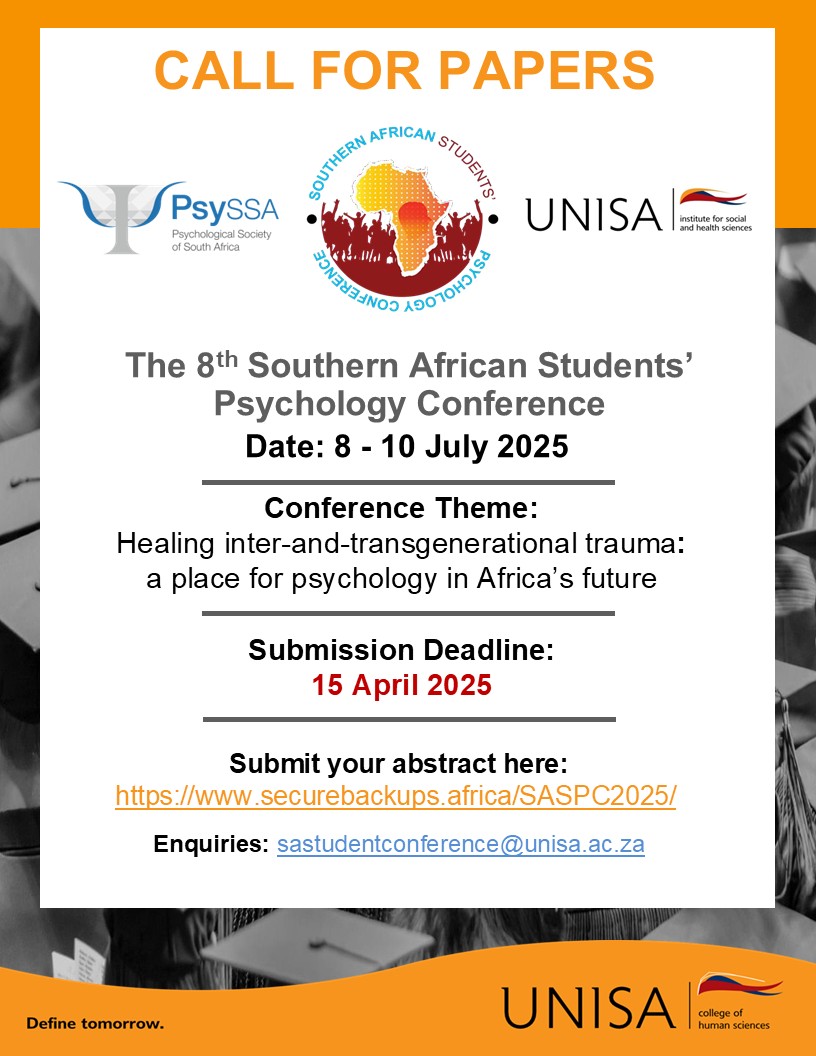
8th Southern African Students’ Psychology Conference – Abstract Submissions Extended- 30 April 2025
Attention Students!
Great news! We’ve heard your requests and are excited to let you know that the abstract submission deadline for the upcoming Student Conference has been extended to 30 April.
If you haven’t submitted your abstract yet, now’s your chance to be part of this inspiring event. Don’t miss the opportunity to share your work and connect with fellow students and professionals in the field!
Check out the submission details below and get yours in before the new deadline.
PsySSA & UNISA ARE PROUD TO PRESENT:
8TH SOUTHERN AFRICAN STUDENTS’ PSYCHOLOGY CONFERENCE
The Psychological Society of South Africa (PsySSA), in partnership with the University of South Africa (UNISA), is excited to invite students, researchers, and emerging scholars to the 8th Southern African Students’ Psychology Conference 2025. This exciting event provides a dynamic platform for students to showcase their research, engage in intellectual discourse, and connect with fellow psychology enthusiasts and professionals.
Conference Theme: Healing inter-and-transgenerational trauma: A Place for psychology in Africa’s future
Date: 8 – 10 July 2025
Venue: Kgorong building, Unisa Muckleneuk Campus, Pretoria, South Africa.
This conference aims to explore the psychological challenges faced by today’s youth, with a focus on the impacts of intragenerational trauma and pressing social issues, while emphasising psychology’s critical role in healing the trauma. The approach is to integrate both indigenous knowledge systems and western psychological perspectives. The conference aims to propose culturally relevant interventions to tackle the psychosocial impacts of past and ongoing inequalities. The focus will be on the current state of the field and looking ahead, examining the future of psychology in Africa and how it can evolve to foster healing and resilience in the generations to come.
Call For Abstracts Are Now Open!
We welcome submissions from undergraduate and postgraduate students across diverse psychology-related disciplines. Whether you have original research, case studies, or innovative theoretical contributions, this is your chance to contribute to meaningful discussions shaping the future of psychology.
Abstract submissions close on 15 April 2025.
